We have a treat for you this week: Starts With A Bang gets to host this week's Carnival of Space! We take the best space and astronomy posts from around the internet and pull them together in one great extravaganza! I've gotten to host twice before, and this is a very special edition for astronomers. Why, you ask?
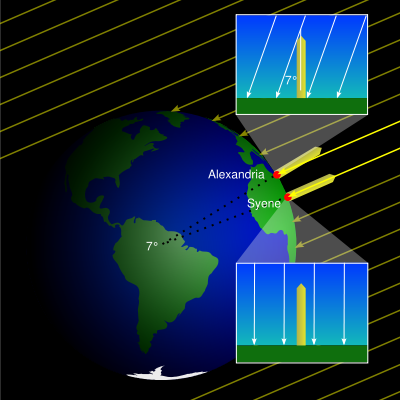
Yesterday was the Summer Solstice! Longest day of the year (for us Northern Hemisphere folk), most sunlight, the Sun gets highest in the sky, and shadows are the shortest. If you want to go all the way back, this was the day that allowed us to discover the Earth was round! Let's take a look at what goodies we have to help you celebrate the onset of Summer.
First off, we've got some solstice celebrations for you! Alice's Astro Info has a special on Solstice Park in Seattle, one of the most special places to be on the longest day of the year. Nice, but is it as spectacular as Stonehenge during the solstice?
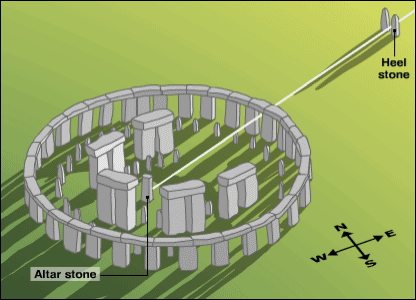
Depending on where you are, there are fantastic things for you to check out! Like star parties and astronomy meet ups? Nicole at One Astronomer's Noise has a great event in Atlanta going on. Happen to be in New York? Chandra blog takes a look at the latest World Science Festival. And are you interested in getting a degree in Space Sciences? KySat reports on the opening of a new Space Science Center at Morehead State University.
But maybe you don't want to travel that far for your space fix. Some of the greatest things that happen on Earth are as simple as waiting for night to fall and looking up.
Will Gater starts us off with Noctilucent clouds, which are thin, sparse, and as high as 80 km up! (You can even sometimes see stars through them.) Going out when it's darker? Astroblog has the best tips on how to see the most stars the fastest!
And what about the opposite of looking up from Earth? What about looking down on Earth from above? Orbital Hub has the skinny on SMOS -- the Soil Moisture and Ocean Salinity Mission, designed to track climate change on Earth. Paul at Centauri Dreams can't quite wait, and so he tells you about geoengineering and how to force climate change. And Bruce at 21st Century Waves one-ups them all by going in to inner space, to the bottom of the ocean! It's a long way down...

Ever wonder how you get those great satellites up there? It's expensive, time-consuming, and inefficient. That is, until we find a better way to do it. Next Big Future points out not just one, but two new technologies that may make it cheaper and easier. Also looking into the future, Babe in the Universe has a sneak preview of the Orion Spacecraft, slated to debut in 2015. And did you ever want to know how to get a telescope named after you? CheapAstro has a podcast of the story of James Webb, and why Hubble's successor gets named after him.
But for me, the real excitement starts when you actually take a look at what's up there. When the Sun (finally) goes down, what are you going to see?
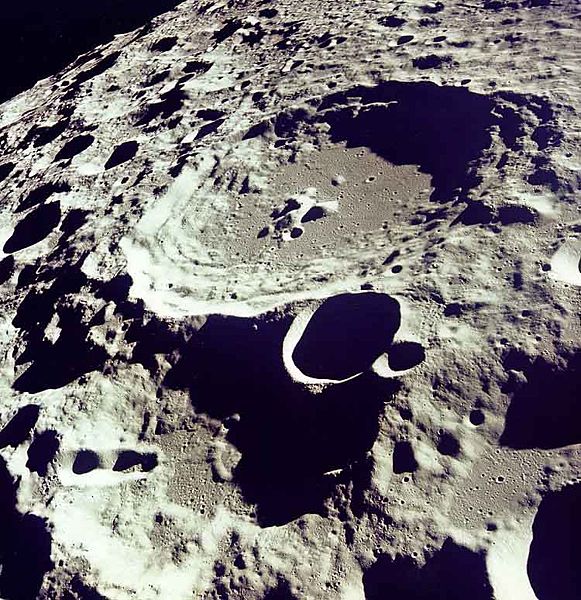
Sure, sure, the Moon. But what if you really want a good look at it? Out of the Cradle has a review of a fantastic book on Moonwatching, especially for novices. Cumbrian Sky has some supremely interesting Moon information, including about the history of landing on it. As opposed to crash-landing into it, like the Japanese probe Kaguya just did, as reported by Potentia Tenebras Repellendi (Power to Repel the Darkness). Don't know why Kaguya is so impressive? Just watch...
What'll get us back on track? Let's have a look at other worlds!

Mars is a long-time favorite of almost everyone. You know that there used to be lakes there? Universe Today has the scoop on this "former" lakefront property, while Meridiani Journal reports about not just the lakes but also of the discovery of lightning on Mars! But not all the news is good, as some of us have clouds even on the Solstice. David Portree at Robot Explorers has the heartbreaking story of Mars Sample Return, the mission that never was. (1967-2004, R.I.P.)
But just as there is cause to mourn, there's also cause to celebrate! The Gish Bar Times reports on the 30th anniversary of the discovery of a Volcanic Eruption on another world: Jupiter's innermost moon, Io.
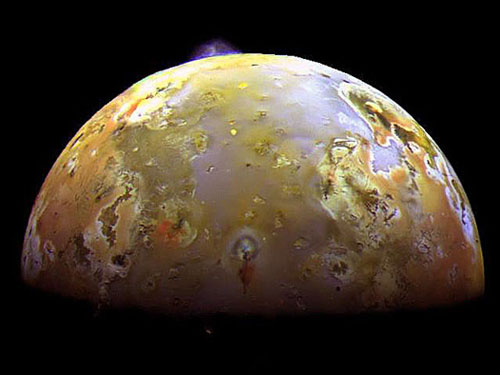
And finally, we move out into deep space, which is my favorite place to look. This is where the deepest, most difficult mysteries lie. Well, it turns out you don't even need to be a grownup to help. Visual Astronomy reports on a young, motivated teenager who discovered a Supernova! Congratulations to 14-year-old Caroline Moore, who is now the youngest person ever to discover a Supernova!

How to follow that? Well, just like the Universe does. Supernovae explode, throw off gas and dust, and cause new stars and planetary systems to form. The Spacewriter makes sure we get it right, and tells us in detail how Planets form in the Universe. And, for the very first time, we have evidence of planets forming in another galaxy, courtesy of our cheeky, wormhole-loving friend, Ian at Space Disco.
And it simply wouldn't be fair to send you off without my very own highlights. Believe it or not, there was a time -- less than 100 years ago -- where we didn't know what this was:
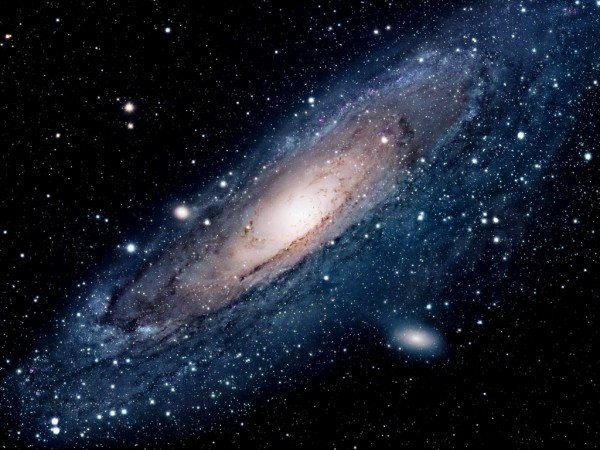
Want to know the story? Check out how other galaxies and the expanding Universe were discovered in the 1920s, along with the greatest achievements for astronomy/astrophysics of the 1910s, 1930s, and 1940s right here!
Check out all the previous Carnivals of Space here, and be sure to come back and check out the rest of my decade-by-decade saga of the Universe right here at Starts With A Bang!


Great Carnival of Space edition, Ethan! If folks are interested in the human exploration of Mars, they might want to follow my blog posts on the FMARS expedition to Devon Island.
Brian, you might be interested, since that's a great idea, in contacting Fraser Cain from Universe Today about getting your blog posts included in the Carnival of Space!!
Great Carnival, Ethan!
I don't think it's accurate to say that MSR died in 2004. My story just ends there (for now). I plan to write about a 2008 MSR study soon. So many mission plans, so little time.
So, MSR (planning) lives!
David
In that case, I hope you stop back here to set me straight when the post goes up!
oooh, my head is spinning.
That's pretty awesome finding a supernova - and at 14! I'll just go on dreaming of seeing a supernova bright enough to make an obvious naked-eye difference in the sky.
Now as Eric Idle and Trevor Jones had put it: Just remember that you're standing on a planet that's evolving and revolving at 900 miles an hour ...
Ethan,
that was a great potpourri/carnival -- thanks.
I'll stop by again,
Daniel Hudon
(author of "The Bluffer's Guide to the Cosmos")
.
my suggestions for the Human Space Flight Plans Committee and NASA here:
.
http://ow.ly/f3vQ
.
I plan to write about a 2008 MSR study soon
Hey folks,
I was wondering if anyone there can direct me to a site where I can check out what N.A.S.A. and the astronomic comunity have in the works for, say, the 2020's and beyond. I like to look ahead and get an idea of just what's on the horizon for our exploration of the Galaxy.
Thanks
Dale Sanhuber
dalesanhuber@yahoo.com
What a totally amazing selection of virtually everything in the Universe that matters to us little dust devils. A tour de force, as they say. Definitely a keeper - as it will take weeks to work through all the references! But fun, tho. Thank you!
i love this website.
manos voces sao tudo uns otarios
so perdem tempo mesmo hein
vao se fuder seus bostas ou devo dizer modo fuckers
son of pit se e que e assim.
itlooks very charms
"Well, just like the Universe does. Supernovae explode, throw off gas and dust, and cause new stars and planetary systems to form."
That part I don't get - how does this explosion case new stars to form exactly?http://www.mortgagelasvegasnevada.com/cash-out-refinance.php